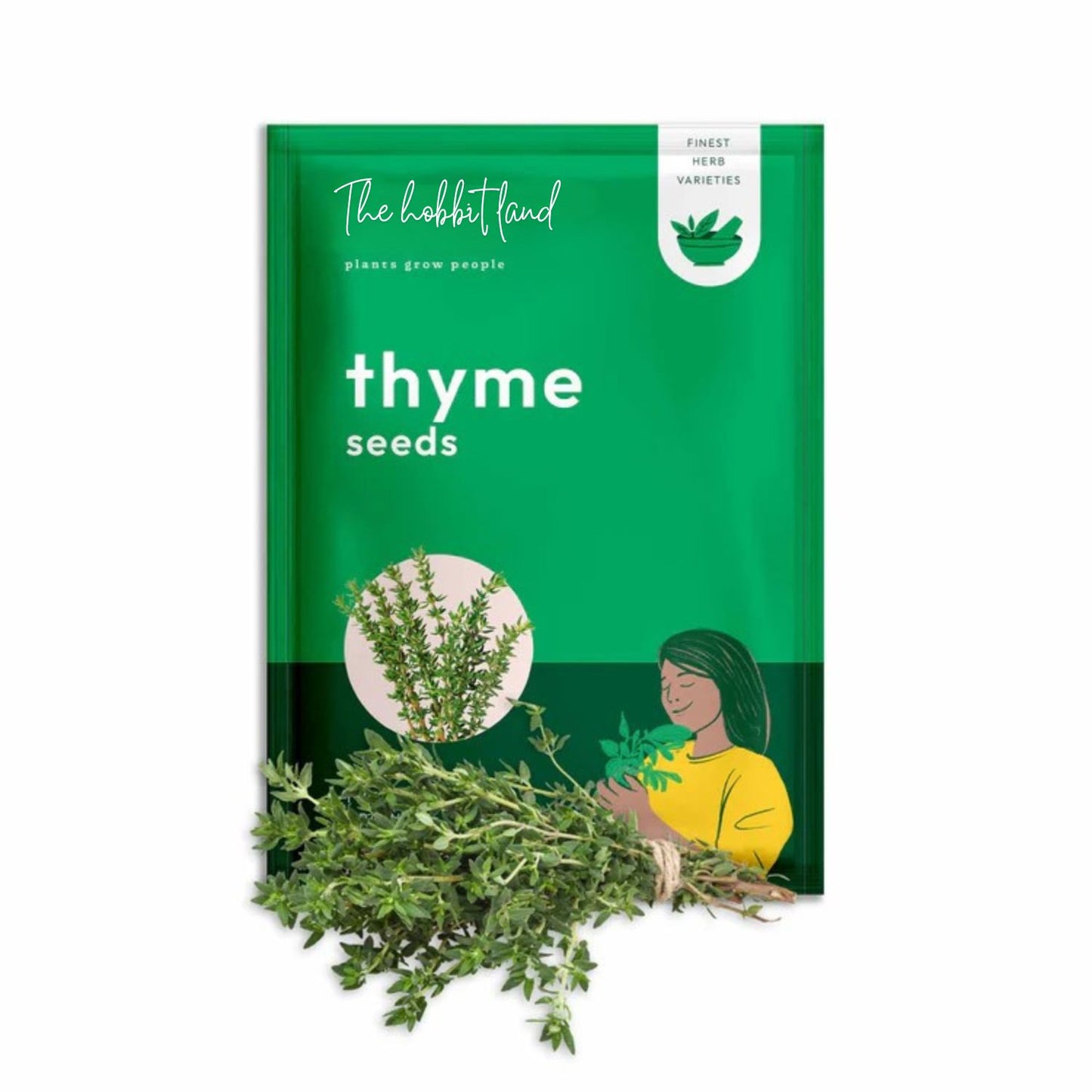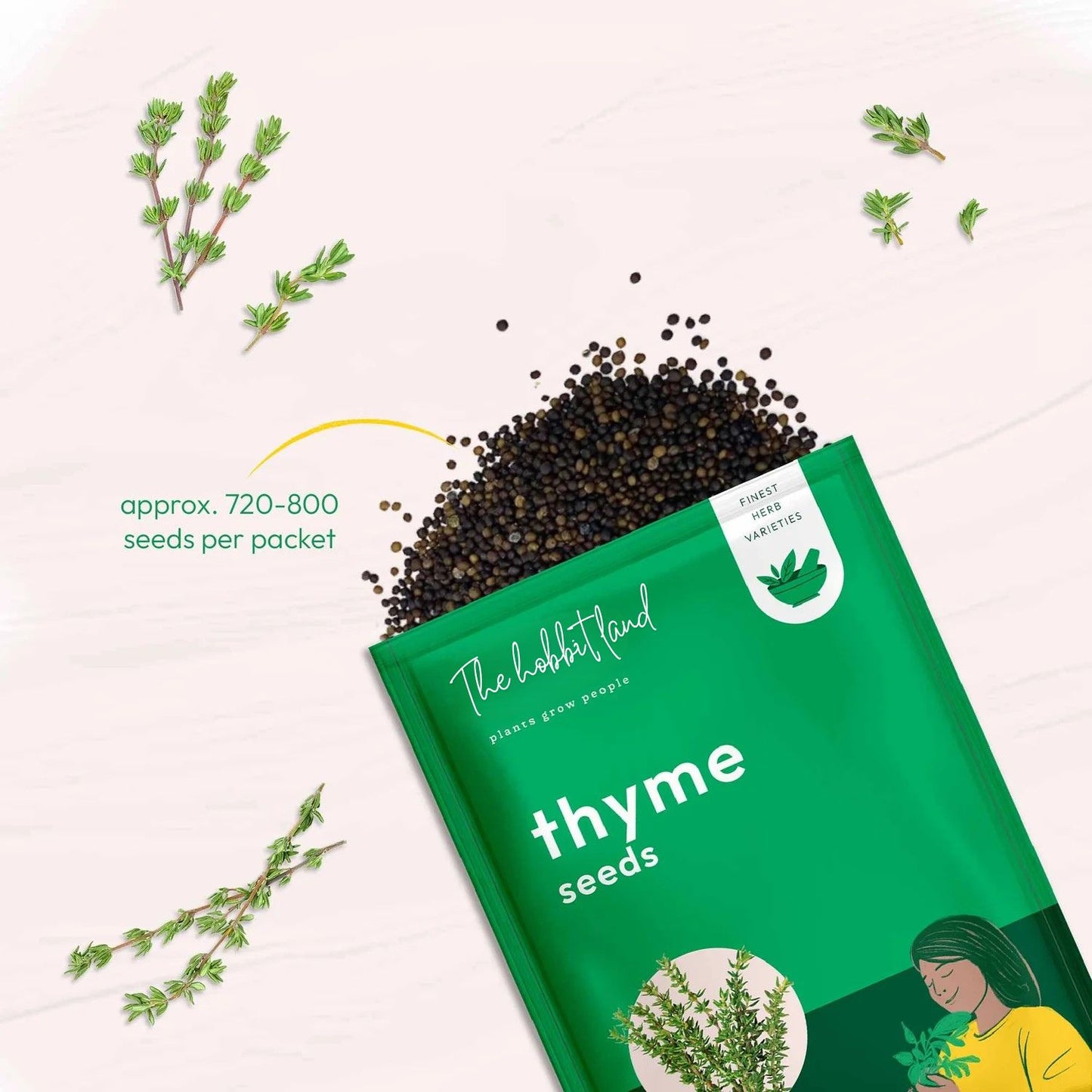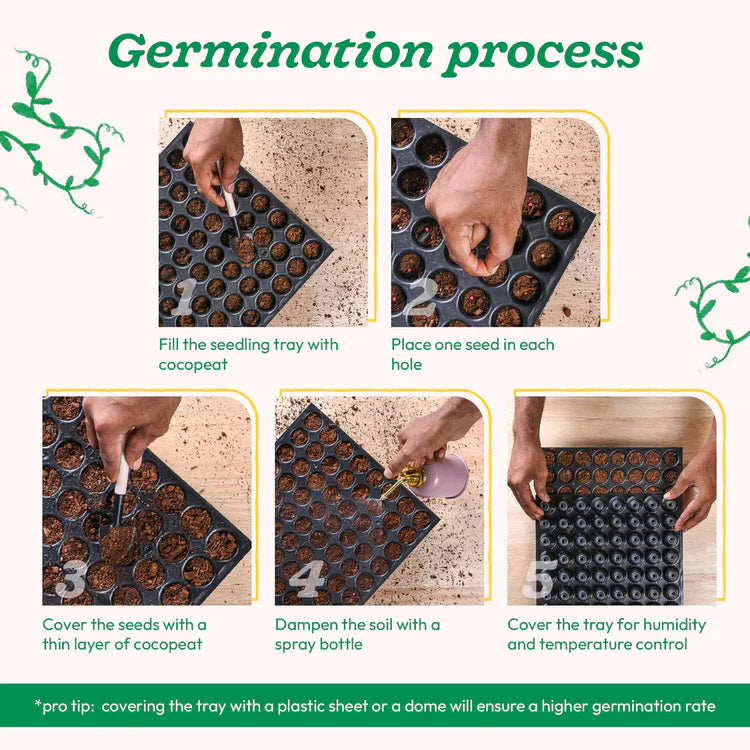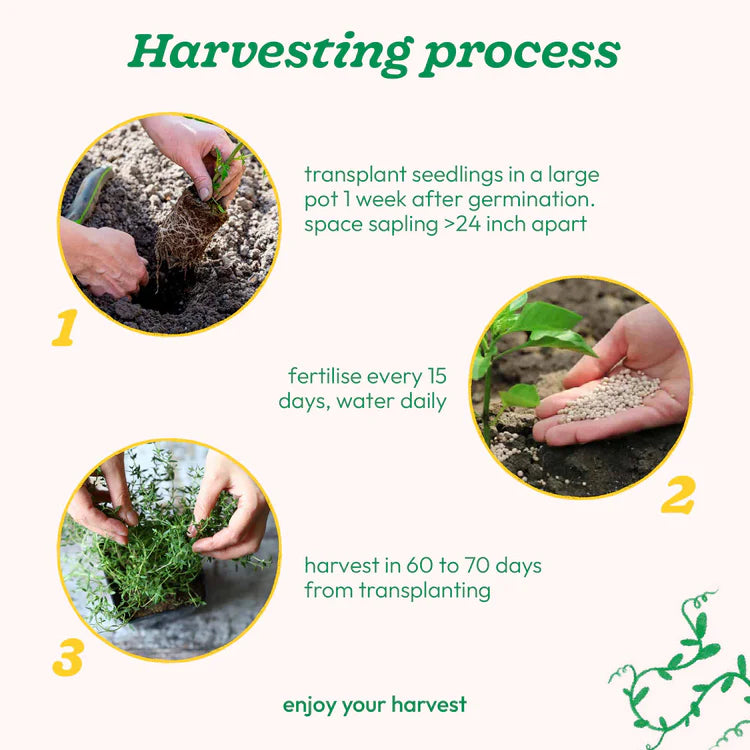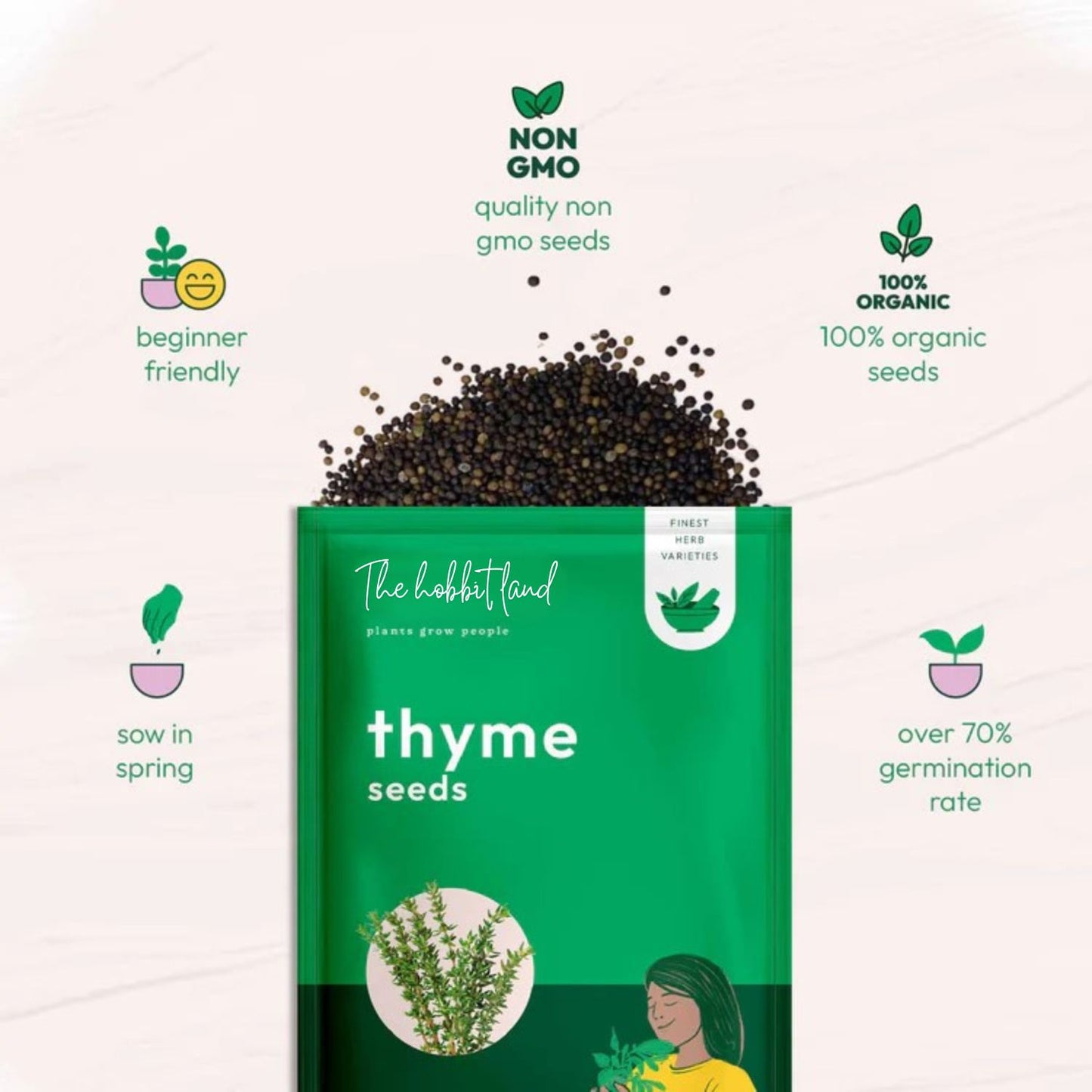Thyme
Thyme
The flowers are purple, pink or white in color and appear in the spring and summer months, also good for attracting pollinators. Growing thyme is very easy because it is a low-maintenance plant that can easily grow throughout the year.
What size grow bag is best for Thyme?
12 x 12 (W*H)
15 x 12 (W*H)
15 x 15 (W*H)
24 x 12 (W*H)
Thyme Growing Season In India
Thyme is best planted during the cooler seasons, which are from late September to early November and then again from late January to early February in most regions of India. These periods provide the milder temperatures that thyme prefers for optimal growth.
How To Grow Thyme In Pots
Thyme seeds can be sown directly into any pot or transplanted, but transplanting is recommended by most gardeners. To plant thyme, you need a pot or grow bag of at least 30-60 cm wide and 30-36 cm deep with well-draining holes. You can sow thyme seeds either indoors or outdoors in warm climates and the optimum temperature for seed germination is between 15-25°C.
Thyme Seeds Sowing Method
Select a seedling tray or small-sized pot (up to 12 cm deep), fill it with a growing medium such as coco peat or perlite and spread the thyme seeds over it, then cover with a thin layer of soil over the seeds. Water gently and keep the soil moist. Place the seedling tray in a dark place for the seeds to germinate. Thyme seeds germinate in about 2-4 weeks. After the seeds have germinated, when the plant reaches 8-10 cm tall, you can transplant it into larger pots or grow bags. Spacing should be maintained during planting as thyme requires air circulation, especially in hot or humid conditions. Thyme should be planted in a large pot about 30-60 cm apart.
Best Fertilizer For Thyme Plants
Thyme plants don't require additional fertilizer, just apply a diluted all-purpose fertilizer (such as mustard cake and vermicompost) every spring.
Thyme Plants Care
Soil : Use well-draining, sandy and loamy soil for planting thyme. It is a drought-resistant herb, so it hates wet conditions and performs best in soils with low nutrients. Remember that thyme should not be planted in rich, and moist soil.
Water : Since thyme is a drought-resistant plant, water only when the soil is completely dry, too much water can cause fungal diseases and root rot.
Sunlight : Thyme thrives in full sunlight in a sunny location which should be at least 6-8 hours. However, it can tolerate a hot climate. You can also grow thyme indoors on a sunny windowsill.
Temperature : Thyme plants grow best in air temperatures between 18-30°c.
Common pests and diseases : Thyme plants are not infected with any serious problems, but the plants usually suffer from root rot which is caused by moist soil conditions or overwatering.
Pruning : To keep the thyme plants well-shaped and encourage new growth, prune your thyme plants every spring and summer.
Mulching : Mulching is a good option to protect the thyme plant from the cold climate, for mulching add 5-8 cm of dry leaves, straw, grass, etc. on the soil. You can also keep your thyme pots indoors in winter.
Harvest Of Thyme Leaves
• Thyme becomes ready for harvesting within 2 months of planting. However, you can harvest the leaves once the plants are established.
• You can cut the leaves with a scissor as needed.
• Regular harvesting will encourage more leaves.
• Cut off the young and top leaves before the plant flowers for delicious flavor.
Product features
Product features
Materials and care
Materials and care
Merchandising tips
Merchandising tips
Share
- Heading
- Heading
- Heading
Couldn't load pickup availability
